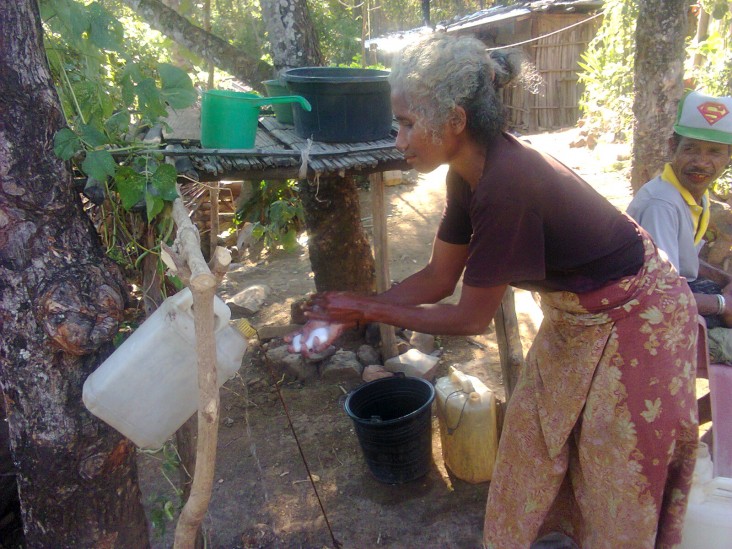Speeches Shim
|
Project Purpose: Poor agricultural practices and a lack of clean water and sanitation affect health, diet and quality of life in one of Timor-Leste’s poorest regions. |
Location: Oecusse-Ambeno Administrative Region |
|
Key Counterpart: Special Economic Zones for Social Market Economy (ZEESM) |
Duration: May 2015 — November 2020 |
|
Cooperative Agreement: $2.7million |
|
|
Partner Contact: World Neighbors, Inc. Edd Wright Regional Director for Southeast Asia Bali, Indonesia Email: ewright@wn.org |
USAID Contact: Candido Conceição Project Management Specialist |
Summary:
The region of Oecusse-Ambeno, on the western side of Timor Island, is characterized by low food production levels, an absence of adequate clean water supplies, and isolation from the rest of the country. The ecology is fragile and bears the negative impact of slash-and-burn agriculture, which also diminishes already inadequate water resources. Communities are mostly located in remote, uphill locations, where road infrastructure is very poor and access during the wet season is extremely difficult. The lack of clean water sources, sanitation, and hygienic practices in the area leads to health problems. Many water sources are contaminated, resulting in a host of water-borne diseases, including E. coli, which particularly affects the elderly and children under five.

Major Achievements:
-
Eighty water sources protected and now supplying households from 110 neighborhoods with clean water, representing a third of Oecusse’s population.
-
Two neighborhoods declared open defecation free (ODF) in FY 2018 with 82 percent of participating households now having access to toilets.
-
Three additional neighborhoods asked to join ICRO’s sanitation component (focus on ODF status in contrast to only water source protection), bringing the number to 16.
-
Thirty-six savings and credit associations strengthened, increasing local capabilities to procure repair services for their water systems.
-
Coordination with the water and sanitation department in Oecusse resulted in securing 2018 budget funds for building new rural community water systems; establishing a billing system for an urban water system; repairing/rehabilitating numerous existing rural water systems; and recruiting/hiring the new staff required for the expanded focus. The pending 2019 budget also includes money to rehabilitate more rural water systems.
-
Access to water has allowed people to diversify and increase agricultural production, which increases food security.
-
Farmers in all participating communities trained to use new agricultural technology.


Comment
Make a general inquiry or suggest an improvement.